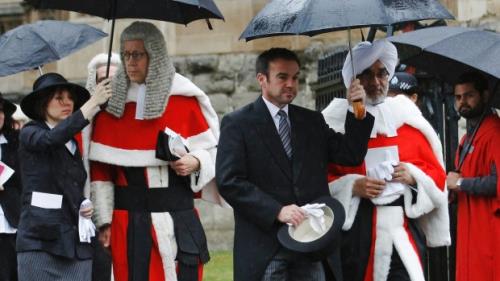UK Judges’ pension revolt highlights indirect discrimination
22 February 2017

The generation of baby boomers are now reaching retirement age in huge numbers, increasing interest in ageism and age discrimination cases.
There has been an extraordinary development in the United Kingdom. Over 200 UK judges joined together and brought a claim against the Ministry of Justice for unlawful age, race, and sex discrimination and for equal pay.
In order to save public money, the British government introduced changes that meant that from April 1, judges under 60 years of age would get smaller pensions than older judges.
The older judges retain the 'gold plated' pension while younger judges would receive less than two thirds of the traditional pension.
Two judges appointed on the same day, to the same court, to do the same work, could have had vastly different pensions because of their age.
The judges claimed that those who would remain on the larger pension were predominantly male and white.
On the other hand those who are female, black, or ethnic minority would largely end up on the wrong side of the change.
The London Central Employment Tribunal upheld the claim. It found that the ministry had indeed discriminated against younger judges by giving them an inferior pension scheme. The discrimination could not be justified.
The law firm representing 204 of the judges said: "This is a great victory for our clients, many of whom sit alongside older judges who were appointed some years after them but who are, in effect paid more purely because they are older".
They added that the greater numbers of female, black, or other ethnic minority judges in the younger group compounded the unfairness of the change.
The ministry has indicated it is looking at appealing the decision.
In New Zealand the Human Rights Act prohibits discrimination on the grounds of sex, religion, colour, race, and age, amongst other things.
New Zealand laws would, in all likelihood, deliver the same result were a similar case heard here.
Over the years age-based claims relating to compulsory retirement have gained public attention in New Zealand. As of 1999 employees can no longer be required to retire because of their age.
Oddly, New Zealand judges do have a compulsory retirement age because of specific legislation. General employees over the age of 65, for example, are able to continue working subject to satisfactory performance, irrespective of age.
Many other countries do not have laws that protect older workers, and sometimes these impact on New Zealanders.
The US Federal Aviation Administration prohibits a pilot from being the 'pilot-in-command' if they are over 60 years of age.
An Air New Zealand pilot, David McAlister, was demoted from captain and flight instructor to first officer on turning 60 because his duties involved flying in US airspace.
Air New Zealand was caught in a tough spot, between US Federal regulations and New Zealand anti-discrimination laws, with public safety concerns underpinning the issue.
The majority of the New Zealand Supreme Court held that to determine whether there was discrimination, McAlister's treatment should be compared to that of pilots of similar seniority or experience aged less than 60.
It found that McAlister's demotion was discriminatory. To justify its actions Air New Zealand had to show it could not reasonably adjust McAlister's duties to enable him to concentrate on other work while other pilots carried out 'pilot-in-command' functions on affected flights.
Perhaps the most striking aspect of the UK judges case is the "indirect discrimination" claims of racial and sexual discrimination.
Obviously the age-based change to the pension scheme in no way directly discriminates on those grounds. However, because far more of the younger judges receiving the lower pension are women or from ethnic minorities, there is indirect racial and sexual discrimination.
As in the UK, people in New Zealand are protected by the Human Rights Act from indirect discrimination. If someone acts in a discriminatory way, they must show there is good reason for what they did.
For example, if an employer imposes a weight restriction for a certain role this might discriminate against certain ethnicities that naturally have bigger body sizes.
However, if the employer can show that the position required the riding of horses in competitive races, that might be a good reason for the limit not to be ruled unlawful.
It is extremely unusual for judges to litigate against their Lord Chancellor and Justice Ministry like they did in the UK. However, the lesson to be learnt is that treating two groups of employees differently because of their age puts you on shaky ground.
The injustice here is so flagrant that it is not surprising the judges challenged it.


